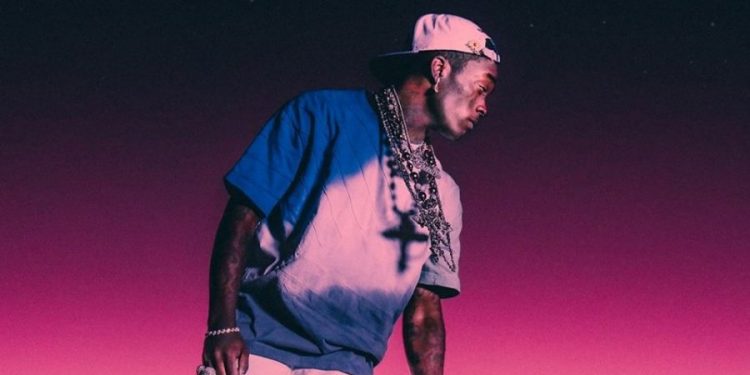Lil Uzi Vert is a musical savant wrapped in a blanket of face tattoos and a size XS wool Gucci sweater. His latest exhibition, “Eternal Atake,” is a living incarnation of this dichotomy.
Uzi has spent the last several years fighting tooth and nail to release his long-awaited follow up to “Luv Is Rage 2,” spawning a sea of speculation and public demand in the process. In a time when rappers suffer from either releasing a plethora of music in a short time or being held hostage by industry gatekeepers from releasing music, Uzi is the biggest victim of the latter.
Uzi’s old label, Generation Now, and its heads, DJ Drama and Don Cannon, held the album captive, according to Uzi — he’s now signed to Roc Nation. The label controversy even started the “Free Uzi” campaign on social media.
Uzi also suffered from leaks. Though extremely frequent in the hip-hop community, dating back decades, leaks can set albums back for months or even years. In the case of Lil Uzi Vert, his music was being leaked daily, which created a whirlwind of confusion and chaos that directly affected the release of the record. Some fans even feared that the album was scrapped altogether, with Uzi saying at the beginning of 2019 that he “quit” music and “deleted everything.” This album could have fallen into the shadows of legend, as other records have, like Dr. Dre’s “Detox.”
This long-awaited process created something so rare in our age of hyper short attention spans: demand. Uzi evolved from a rising star into a household legend, yet without the music to match. He created a yearning for music in an age when the greatest marketability of a song is whether it fits in the confines of a TikTok. By creating this ominous presence, Uzi channeled an amount of attention and devotion that is unprecedented for our modern time period. “Eternal Atake” was a record that the whole world was wondering about — and the album delivers.
The extraterrestrial-themed album plays to Uzi’s biggest strengths while eschewing weaknesses that may have held him back in the past. One of the most notable transformations Uzi’s work has taken in between releases is the development of concepts and diversity of sound. In the past, Uzi played around with concepts, yet we never saw him produce an album with the fully-fledged artistic structure of “Eternal Atake.”
The album is split up based on Uzi’s different personalities, which is extremely clear when looking at how the album sonically develops from start to finish. The beginning of the record speaks to the hip-hop influences that Uzi has been inspired by, like the current New York music scene and the DMV flow. We see aspects of these concepts littered all throughout the first third of the album, and rather than sounding like bad covers of the developing music scenes in these areas, Uzi completely makes them his own. This part of the record is a nonstop, exhilarating ride into the high-fashion life of Lil Uzi Vert.
The next third of the album puts the variety of Uzi’s talents on display. The melodic style of Lil Uzi Vert is probably the most improved technique in his arsenal, specifically on this part of the album. The production plays directly into Uzi’s style and only elevates the work supplied on “Eternal Atake.” Other artists in this genre sometimes hide behind the gauze of overbearing production, but Uzi uses it as a blank canvas to paint over. A perfect example of this is “Chrome Heart Tags,” where the Chicago-inspired production from Chief Keef is perfectly matched by Uzi’s unlimited energy. This part of the record is as angsty and raw as we saw from him during his ascendence into the mainstream, like with his all-time hit “XO Tour Llif3.”
The final part of the album is a culmination of all the aspects of Uzi’s music previously discussed, with new variations that center the record in regards to style. We see Uzi playing with melodies and vocal structures that glaringly show his pop-punk influences and give the album the legs to become his greatest body of work yet. The best showing of this evolution comes in the album’s only collaborative song “Urgency,” with The Internet’s frontwoman, Syd. The song directly shows the growth Uzi has experienced in these three years and pushes him out of his comfort zone with stellar results.
The record is intimate, versatile and intriguing, all while exceeding impossible expectations. It is extremely rare that an album lives up to the hype created by it by crazed fans on Twitter, yet Uzi pulls off the miracle, and fashionably, of course.





